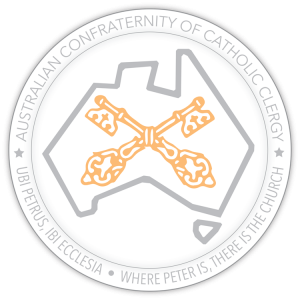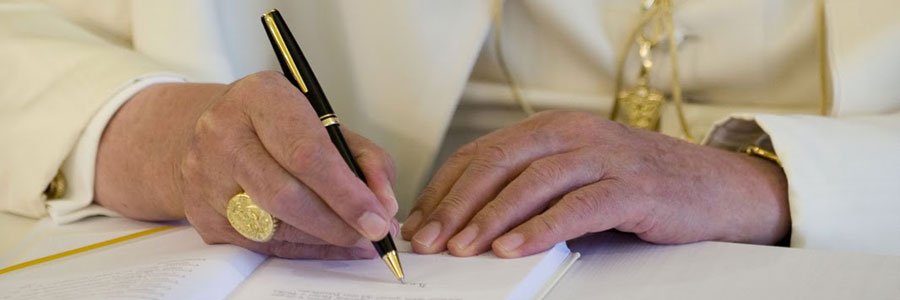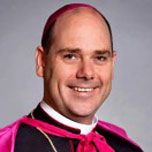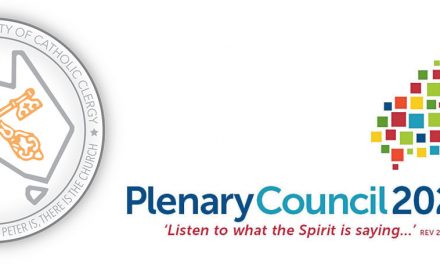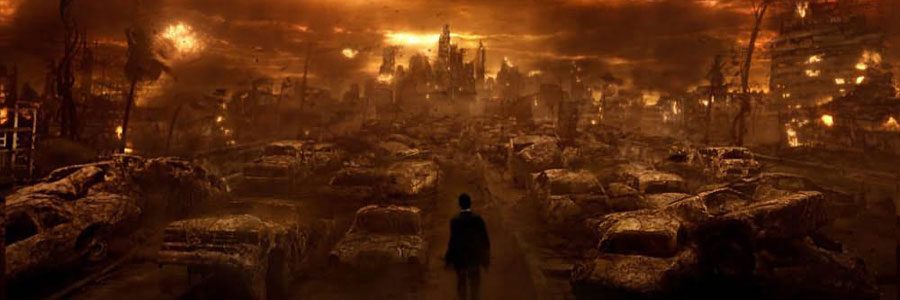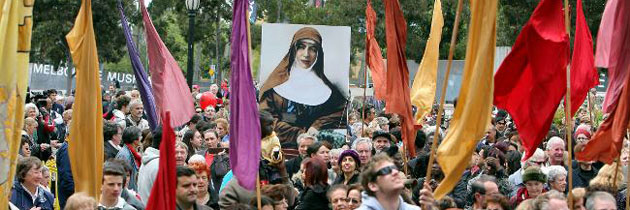As I write these words I have just returned to the parish, having made my annual retreat with a group of about twenty priests. There were the usual elements in any clergy retreat: Holy Mass; Liturgy of the Hours; Eucharistic adoration; devotions; spiritual meditations; quiet reflection; fraternity; and time for personal reading. Like me, I think most priests usually bring along on retreat that good book that they have been meaning to read, but waiting for the right opportunity. And so there is normally a great variety of books being left on side tables at a clergy retreat.
But at this year’s retreat many priests were carrying a par- ticular book under their arm: Pope Benedict’s latest book Jesus of Nazareth. One had to be sure to remember where he set down his copy, lest he pick up the wrong one by mistake! As I read my way from chapter to chapter during the breaks in retreat activities, there was great satisfaction in knowing that many of my brother priests were thumbing the same pages and similarly benefiting from the Pope’s insightful, intelligent, and pastoral look at the Scriptures and at the person of Jesus Christ. (In the Foreword, the Holy Father also undertakes a succinct critique of the historical-critical method of biblical exegesis and the supposed distinction between the “historical Jesus” and the “Christ of Faith.”)
Saint Paul warned us in his second letter to Timothy that “the time is coming when people will not endure sound teaching, but having itching ears they will accumulate for themselves teachers to suit their own likings, and will turn away from listening to the truth and wander into myths.” (2 Timothy 4:3-4) This warning certainly applies to our own age as much as or even more than in ages past. This was no doubt uppermost in the Pope’s thoughts as he worked on the book, for as we read on the book’s sleeve “In this bold, momentous work, the Pope – in his first book written as Benedict XVI – seeks to salvage the person of Jesus from recent “popular” depictions and to restore Jesus’ true identity as discovered in the Gospels. …. The Pope shares a rich, compelling, flesh-and-blood portrait of Jesus and incites us to encounter, face-to-face, this central figure of the Christian faith.” The Pope is thus utilising yet another medium for the dissemination of the Truth in an age dominated by the “dictatorship of relativism.”
We priests can assist the Holy Father in this task by reading the book ourselves and by encouraging others to read it too. More importantly, we can incorporate many of Benedict’s insights into our own preaching, since many of his reflections naturally lend themselves to talks and homilies. It would not surprise me if this was, in fact, one of his hopes for the book: that he would find in the priests willing and enthusiastic cooperators in restoring the true image of Jesus Christ in our world. By the number of priests reading Jesus of Nazareth on my recent retreat, I would say the Holy Father’s plan is unfolding nicely. I encourage you to pick it up if you haven’t already.
